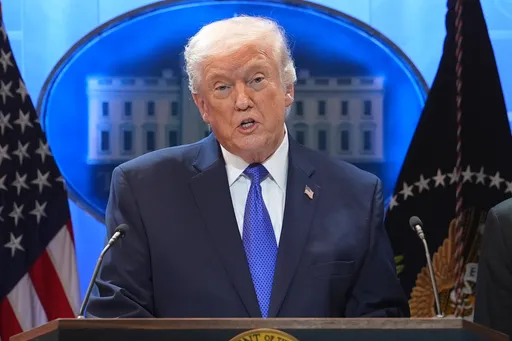Haitians will no longer be eligible for US visas given to low-skilled workers, the Trump administration said on Wednesday, bringing an end to a small-scale effort to employ Haitians in the United States after a catastrophic 2010 earthquake.
The Department of Homeland Security (DHS) announced the change less than a week after President Donald Trump reportedly questioned in an Oval Office meeting why the United States would want to take in immigrants from Haiti and African nations, referring to them as "shithole" countries.
Trump has denied using that word.
DHS said in a regulatory filing that it was removing Haiti from lists of more than 80 countries whose citizens can be granted H-2A and H-2B visas, given to seasonal workers in agriculture and other industries.
It cited what it said were "high levels of fraud and abuse" by Haitians with the visas, and a "high rate of overstaying the terms" of their visas.
A DHS report published last year stated that Haitians on a variety of non-immigrant visas, including H-2As and H-2Bs, had a roughly 40 percent visa overstay rate in the 2016 fiscal year.
Belize and Samoa were also removed from the lists, for risks stemming from human trafficking and not taking back nationals ordered removed from the United States, respectively.
Just a few dozen Haitians entered the United States on the visas each year since they were given permission to do so in 2012 by the Obama administration, according to DHS data.
Sixty-five Haitians entered the United States on H-2A visas, given for agricultural work, in the 2016 fiscal year, according to DHS data, and 54 Haitians were granted H-2A visas by the State Department between March and November 2017. The number of Haitians entering in 2016 on H-2B visas, which are for non-agricultural seasonal work, was more than zero but too low to report, according to DHS.
Supporters of the visas say they gave Haitians a rare opportunity to work legally in the United States, contribute to the US economy, and help fund the recovery of Haiti after the earthquake, which killed more than 200,000 people.
"They're just cutting off the most economically beneficial visa for the Haitian people," said Sarah Williamson, founder of PTP Consulting, a Virginia-based consultancy that ran a pilot program to bring Haitians to the United States on the visas.
"Even though not many people have been able to avail themselves of it, it's been hugely transformational for those who have participated."
In an interview with Reuters on Wednesday, Trump praised Haitians.
"I love the people. There's a tremendous warmth," he said. "And they're very hard-working people."
Humanitarian groups and Republican and Democratic members of Congress lobbied the Obama administration to make Haiti eligible for the short-term worker visas, arguing that remittances to family in Haiti would help the country recover from the earthquake. Without H-2A and H-2B visas, there are few legal avenues for most Haitians to go to the United States.
The Obama administration added Haiti to the list of approved countries in 2012, and PTP Consulting stepped in to screen and match Haitian workers with farmers in the United States.
In countries with more experience sending workers to the United States, such as Jamaica, the home-country government typically does much of that work and regulates the H-2A process heavily, Williamson said.























